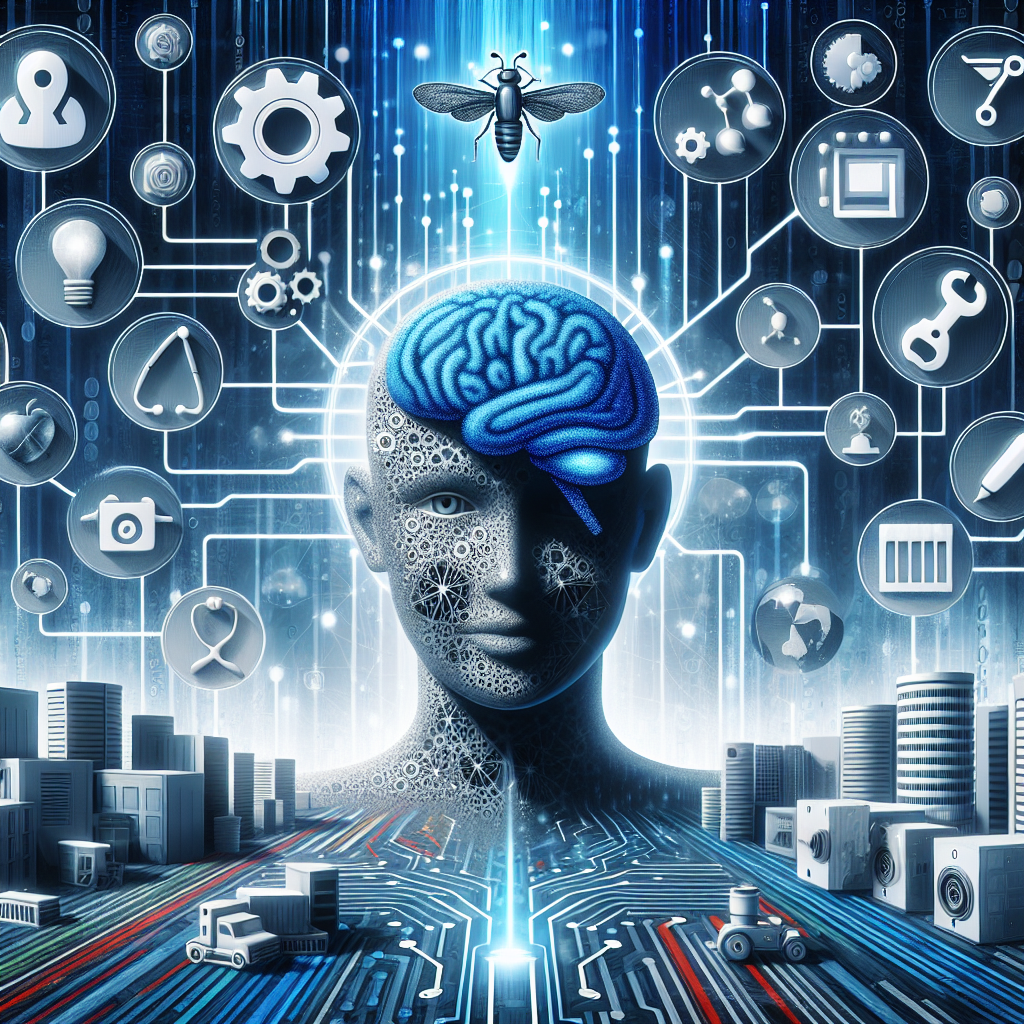Artificial Intelligence (AI) has been transforming industries across the globe, revolutionizing the way businesses operate and making processes more efficient and effective. From healthcare to finance, retail to manufacturing, AI software is being integrated into various sectors to streamline operations, enhance customer experiences, and drive innovation. In this article, we will explore the impact of AI software on industries and how it is reshaping the future of work.
Healthcare Industry:
The healthcare industry has seen significant advancements in recent years, thanks to the integration of AI software. From predictive analytics to personalized medicine, AI is being used to improve patient outcomes, reduce costs, and enhance the overall quality of care. AI-powered software is being used to analyze medical images, predict disease outbreaks, and even assist in surgery. With the help of AI, healthcare professionals can make more informed decisions, leading to better patient outcomes and improved efficiency in healthcare delivery.
Finance Industry:
In the finance industry, AI software is being used to automate routine tasks, analyze data, and detect fraud. AI-powered algorithms can process vast amounts of financial data in real-time, enabling financial institutions to make faster and more accurate decisions. AI is also being used to develop personalized investment strategies, improve risk management, and enhance customer service. With the help of AI software, banks and financial institutions can streamline operations, reduce costs, and provide better services to their customers.
Retail Industry:
In the retail industry, AI software is being used to personalize customer experiences, optimize inventory management, and enhance marketing strategies. AI-powered chatbots are being used to assist customers with their queries, recommend products, and provide personalized shopping experiences. AI algorithms are also being used to analyze customer data, predict trends, and optimize pricing strategies. With the help of AI software, retailers can improve customer satisfaction, increase sales, and drive business growth.
Manufacturing Industry:
In the manufacturing industry, AI software is being used to optimize production processes, improve quality control, and reduce downtime. AI-powered robots and machines are being used to automate tasks, monitor equipment performance, and detect defects in real-time. AI algorithms are also being used to predict maintenance needs, optimize supply chain management, and enhance product design. With the help of AI software, manufacturers can increase productivity, reduce costs, and improve overall efficiency.
Other Industries:
AI software is also making an impact in other industries such as transportation, agriculture, and education. In the transportation industry, AI-powered algorithms are being used to optimize route planning, improve traffic management, and enhance driver safety. In agriculture, AI software is being used to monitor crop health, predict weather patterns, and optimize irrigation systems. In education, AI-powered tools are being used to personalize learning experiences, assess student performance, and improve educational outcomes.
FAQs:
1. What is AI software?
AI software refers to computer programs that are designed to perform tasks that normally require human intelligence, such as learning, problem-solving, and decision-making. AI software uses algorithms and data to analyze information, make predictions, and automate processes.
2. How is AI software impacting industries?
AI software is transforming industries by streamlining operations, enhancing customer experiences, and driving innovation. In healthcare, AI software is being used to improve patient outcomes and reduce costs. In finance, AI software is being used to automate tasks and analyze data. In retail, AI software is being used to personalize customer experiences and optimize inventory management. In manufacturing, AI software is being used to optimize production processes and reduce downtime.
3. What are some examples of AI software?
Some examples of AI software include chatbots, predictive analytics tools, recommendation engines, and image recognition software. Chatbots are used to assist customers with their queries, while predictive analytics tools are used to analyze data and make predictions. Recommendation engines are used to suggest products or services to customers, while image recognition software is used to analyze and classify images.
4. How can businesses benefit from AI software?
Businesses can benefit from AI software by improving efficiency, reducing costs, and enhancing customer experiences. AI software can automate routine tasks, analyze data, and make predictions, enabling businesses to make faster and more informed decisions. By integrating AI software into their operations, businesses can streamline processes, increase productivity, and drive business growth.
5. What are the challenges of implementing AI software?
Some of the challenges of implementing AI software include data privacy concerns, ethical considerations, and technical limitations. Businesses need to ensure that they are using AI software responsibly and ethically, and that they are protecting customer data. They also need to address technical challenges such as data integration, model training, and algorithm optimization.
In conclusion, AI software is transforming industries across the globe, revolutionizing the way businesses operate and making processes more efficient and effective. From healthcare to finance, retail to manufacturing, AI software is being integrated into various sectors to streamline operations, enhance customer experiences, and drive innovation. With the help of AI software, businesses can improve efficiency, reduce costs, and provide better services to their customers. As AI continues to evolve, its impact on industries will only continue to grow, reshaping the future of work and driving business growth and innovation.

